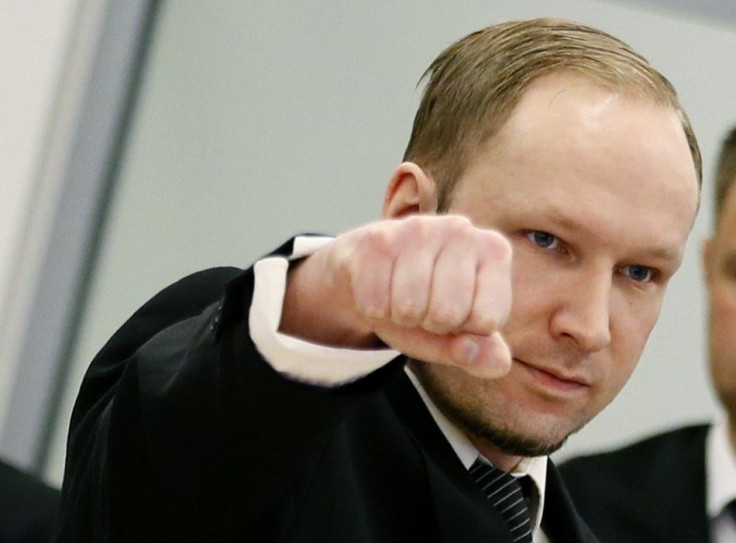Breivik Polished His Shooting Skills Playing Video Games: But Is It Possible?

Anders Behring Breivik, the right-wing extremist accused of massacring 77 people in Norway, has claimed that he polished his shooting skills by playing video games for over a year, before setting out to slaughter dozens of people in Norway's worst peacetime massacre.
On the fourth day of his judicial trial, Breivik said he played the first-person shooter video game Modern Warfare for 16 months, beginning January 2010, to hone his rifle-handling and aiming skills. He is also claimed to have played the multiplayer online role-playing game World of Warcraft for about a year in 2006, devoting 16 hours a day.
The Norwegian killer's claim, regardless of its authenticity, is a grim reminder of how several tragic incidents in history have established proofs for violence in art and media inspiring real-life situations. Apart from the well-known examples of assassins inspired by the book, The Catcher in the Rye, to kill John Lennon, Rebecca Schaeffer and Ronald Reagan, there have been lesser-known criminals, who have implicated movies, television series and books in connection with their criminal aggression.
There have been numerous research attempts connecting fictitious works or games with violent behavior -- some which established direct or indirect links, while some denied them altogether.
Research on violent television and films, video games, and music reveals unequivocal evidence that media violence increases the likelihood of aggressive and violent behavior in both immediate and long-term contexts, a research conducted by the psychology and behavioral sciences departments of Universities of Wisconsin, Michigan, California and Texas found.
US military employs an arsenal of simulators and video games to sharpen the fighting and shooting skills of the recruits.
America's Army is the official US military video game which can be compared to commercial games like Modern Warfare.
The free-to-play game is one of the most effective recruiting tool for the US military than all other Army advertisements combined, a Live Science report said, citing MIT researchers.
Military science experts are of the opinion that video games change the attitudes of people, rather than effectively teaching them how to take an aim or operate a rifle.
You have to understand how hard a heart, how brutal a soul the killer has to have to shoot a person in the face, Lt. Col. Dave A. Grossman, a West Point Professor of Psychology and Military Science and the founder of Killology Research Group, said in an interview.
Even the Nazis and the Mafia couldn't and can't be brought to shooting people in the face. They like to turn them around and shoot them in the back of the head. So they don't have to look in their faces and kill them.
The only way you can do that (shoot someone in face) is by rehearsing and being desensitized to the suffering.
However, researches also say that correlational studies are unreliable in establishing cause. Even if we accept that there is a correlation between amount of time spent playing (violent) video games and aggressive behavior, there is no reason to think that games are the cause of aggression. Furthermore, some correlational studies find no significant relationship with aggression, a paper published by the Cultural Policy Center of the University of Chicago argues.
© Copyright IBTimes 2024. All rights reserved.






















